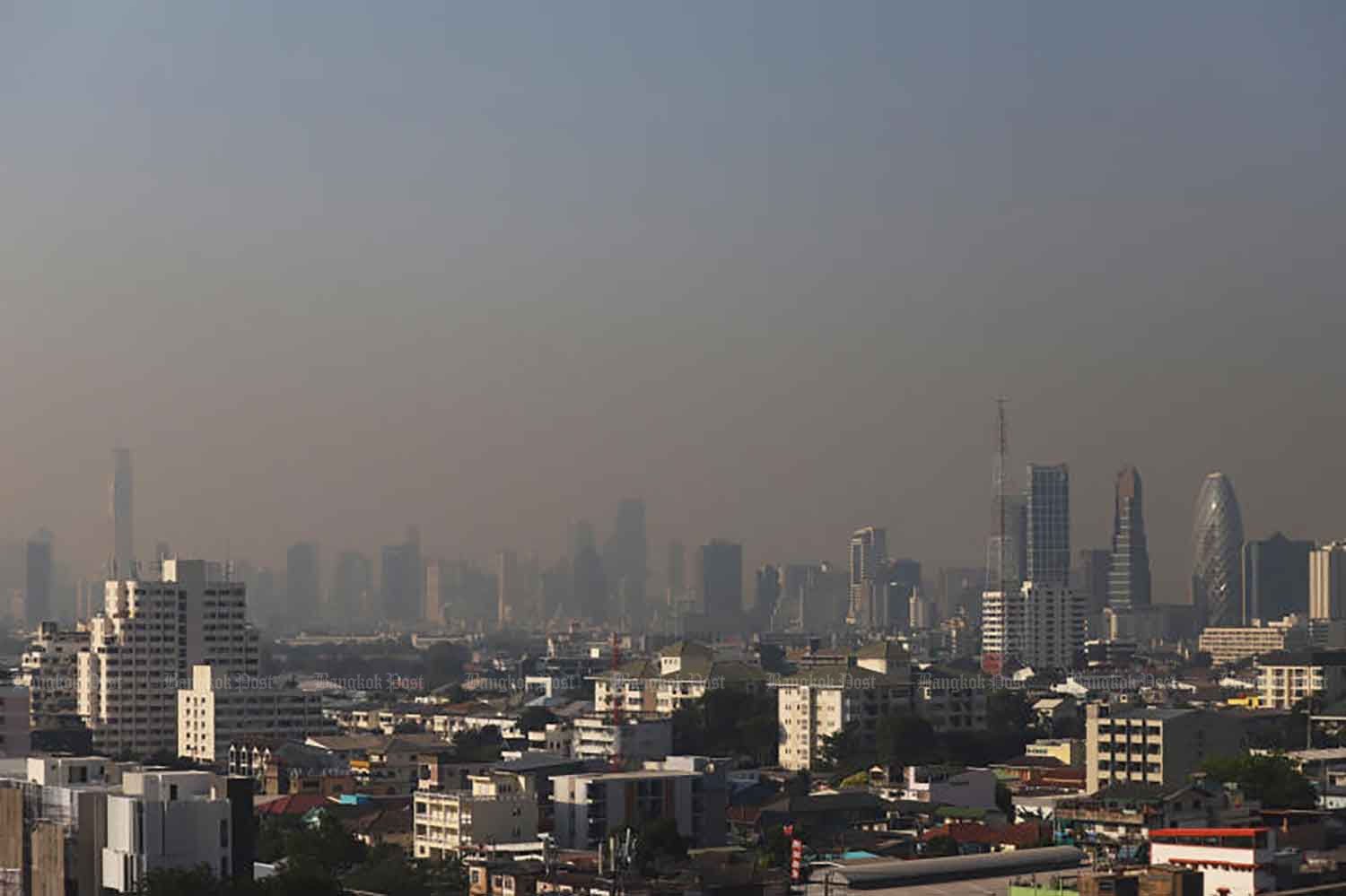Bangkok battles hazardous levels of PM2.5 dust pollution alone

A robust surge of PM2.5, particulate matter 2.5 micrometres or less in diameter, descended upon the Thailand capital Bangkok this morning, setting the city apart as the only one battling seriously hazardous red-coded levels of fine dust pollution. This stark revelation came from the Geo-Informatics and Space Technology Development Agency (GISTDA).
The state space agency’s report at 10am highlighted the severity of the issue, with PM2.5 levels in the capital reaching 77.5 microgrammes per cubic metre (µg/m³) of air in the past 24 hours. This figure is alarmingly higher than the government-set safe threshold of 37.5µg/m³. The red-coded level, indicating a serious health hazard, is triggered at 75.2µg/m³ and above.
On the same day, orange-coded levels of PM2.5, signifying initial unsafety, were detected across 62 provinces. The readings in these regions varied, ranging from 38.4 to 72.6µg/m³. Predominantly, these provinces were located in the central plains and the northeast.
The northern provinces of Chiang Mai, Chiang Rai, and Mae Hong Son, which were previously grappling with red-coded levels, experienced a transition to orange levels on the same Thursday morning. Their PM2.5 readings oscillated between 41 and 44µg/m³.
In contrast, the south reported safe PM2.5 levels, thus escaping the clutch of fine dust pollution, reported Bangkok Post.
The phenomenon saw Bangkok and 62 other provinces shrouded in high concentrations of fine dust pollution, a situation captured vividly in a screenshot from IQAir.
In related news, a surge in smog levels was experienced, with PM2.5 dust readings surpassing 200 microgrammes per cubic metre of air in three northern provinces, including Chiang Mai.
The GISTDA disclosed at 9am that 20 provinces registered red (significantly harmful) levels of particulate matter 2.5 micrometres and below in diameter (PM2.5).
The readings fluctuated between 76.1 and 227.2 microgrammes per cubic metre of air during the last 24 hours. The safety limit set by the government is 37.5µg/m³.
Latest Thailand News
Follow The Thaiger on Google News:


























